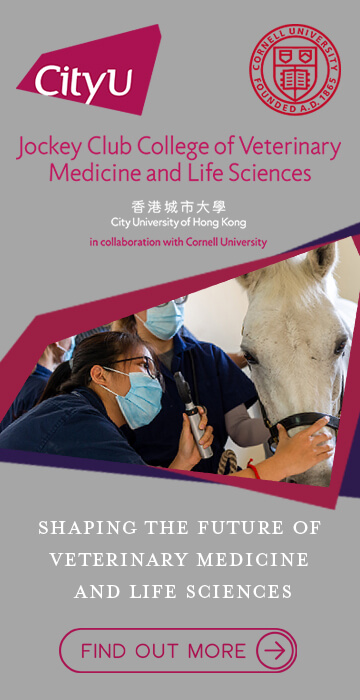Jockey Club College of Veterinary Medicine and Life Sciences

Research in JCC covers two main areas, veterinary and life science research including neurosciences and biomedical sciences. The more veterinary-oriented research foci in JCC fall under the broad themes of food safety, zoonoses control, animal and aquatic health, and animal welfare including viruses, bacteria and parasites that cause diseases in human and animals and the development of intervention strategies to control these types of infectious zoonotic diseases. Research foci in life sciences include various themes of neurosciences, bio/nanomaterials, cancer and regenerative medicine. Work can be categorised into three sub-categories: (i) food safety/quality/security, (ii) prevention and control of zoonotic infectious diseases, and (iii) companion animal health and welfare. The COVID-19 pandemic has had an enormous impact on human health, social activities and the economy.
JCC has taken our very own One Health approach and we have conducted immediate research on several aspects of the COVID-19 pandemic:
- Surveillance of COVID-19 in the human and animal populations including livestock, companion and exotic animals, as well as in environmental niches;
- Studying the pathobiology of SARS-CoV-2 and its pathogenesis;
- Development of rapid diagnostic assays, vaccines and effective therapies against SARS-CoV-2; and
- Predicting the spread of SARS-CoV2 using mathematical models.
These research projects have resulted in a number of high-profile publications in major publications outlets such as Nature, Cell, The Lancet Infectious Diseases, The Lancet Microbes, Nature Microbiology, Nature Communications, Cell Reports etc.
To strengthen our research capability in our focus areas, CityU has set up several research centres, the Centre for Applied One Health Research and Policy Advice, the Centre for Animal Health and Welfare, the Tung Biomedical Sciences Centre at CityU and the Centre for Biosystems, Neuroscience, and Nanotechnology.






